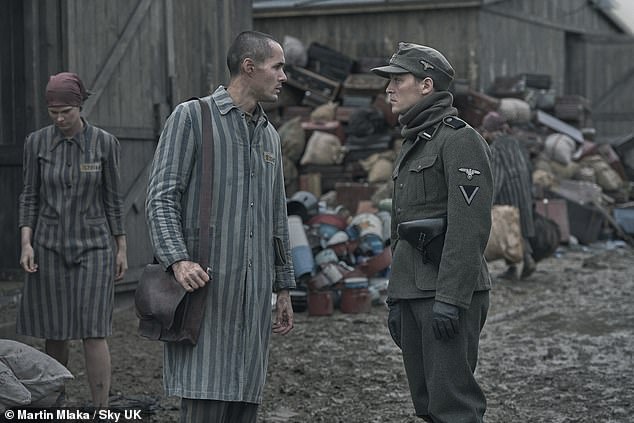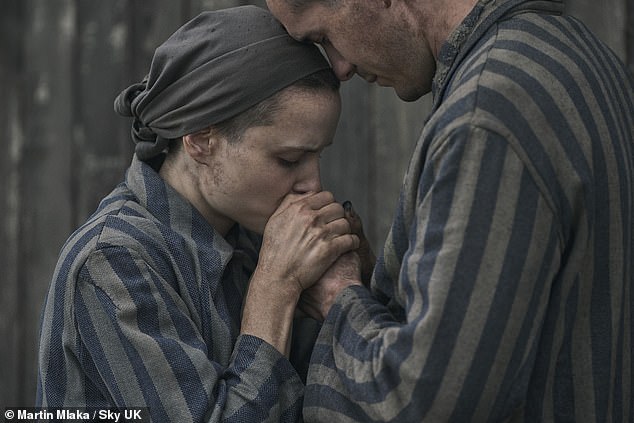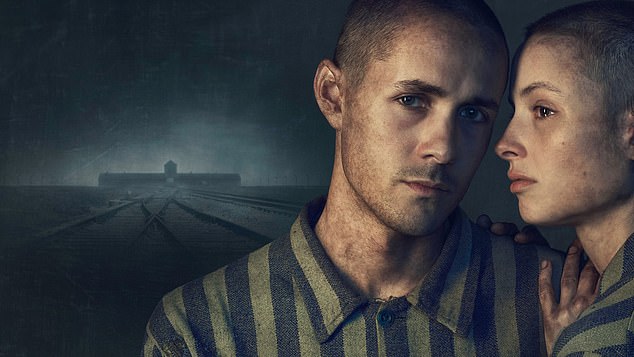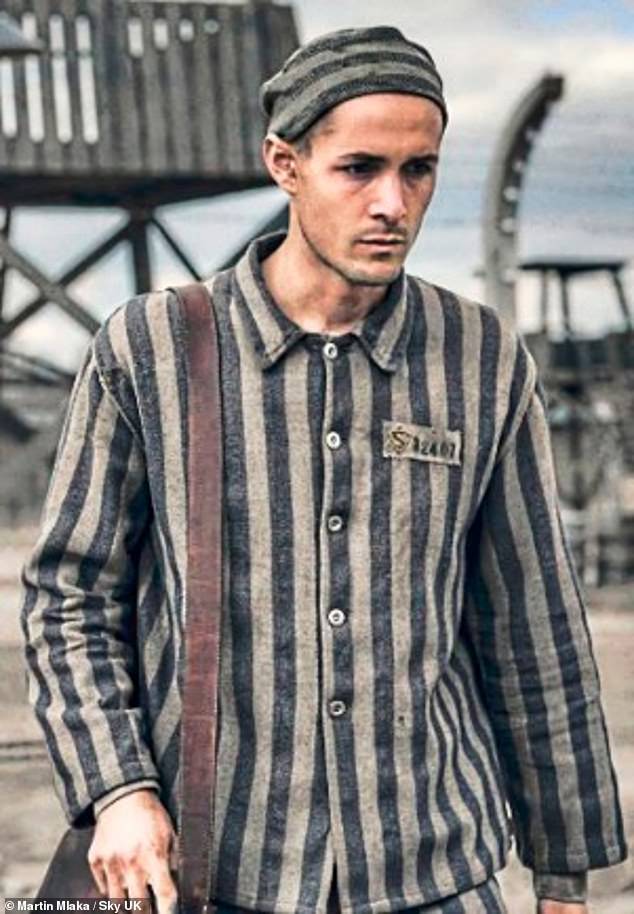Maybe it’s a trick of the imagination.
Maybe it’s some chemical or psychic echo. But anyone who has walked through the underground gas chamber of Auschwitz in Poland can attest to its overwhelming aura of horror.
In the opening shots of The Tattoo Artist of Auschwitz, an SS soldier carries Holocaust survivor Lali Sokolov (Jonah Hauer-King) through the jaws of death to ‘Bunker 1’, the killing room.
At the end of his life, Sokolov (played in old age by Harvey Keitel) describes the moment in more detail to the naïve middle-aged mother Heather Morris (Melanie Lynskey), who is helping him write his memoirs.
The Nazi guard needed him to decipher the numbers tattooed on the arms of two naked corpses, lying on the floor of the gas chamber.
Holocaust survivor Lali Sokolov (Jonah Hauer-King) is taken through the jaws of death to ‘Bunker 1’, the killing room, by an SS soldier in The Tattoo Artist of Auschwitz:

This adaptation of Heather Morris’s 2018 bestseller, based on the true story of Lali Sokolov, does not shrink from the heartbreaking cruelty of the death camps.

True Love: A young woman named Gita (Anna Prochniak), looks into Lali’s eyes and an instant bond develops.
Their faces and stories were of no interest to soldiers, but an accurate catalog of their identification numbers was considered essential.
That Prussian obsession with accounting is one of the most chilling aspects of the museum that is today in Auschwitz, near Krakow.
Precisely compiled extermination records are as shocking, in their own way, as mountains of shaved hair or truckloads of children’s shoes.
This adaptation of Morris’s 2018 bestseller, based on Sokolov’s true story, does not shrink from the heartbreaking cruelty of the death camps.
Smiling SS troops shoot, punch and beat random individuals, while hundreds of others are selected for the conveyor belt of mass murder.
But there are stories of love and friendship that make this bearable, both for us and for the few who survived the camps.
Hauer-King plays Lali, 26, as a gentle, thoughtful but physically brave man, much like his character in the BBC1 drama that made him famous, World On Fire.
The Nazis put him to work as a sort of administrator, tattooing numbers on new arrivals at Auschwitz.

There are stories of love and friendship that make the brutality bearable, both for viewers and for the few who survived the camps.
As he does this, he whispers an apology to each one, like a prayer. One of them, a young woman named Gita (Anna Prochniak), looks into her eyes as she does so and an instant bond develops.
A much stranger relationship begins to develop between Lali and SS psychopath Baretski (Jonas Nay).
Viewers who have seen the notable Cold War spy drama Deutschland 83 will know that Nay is an actor capable of exceptional complexity, and here he makes the Nazi guard almost hypnotically repulsive.
As he waves Lali out of the gas chamber, telling her that he is the only Jew who came out of there alive, he lets out a demented giggle that will repeat itself in your nightmares.
Keitel is also excellent, evoking deep regrets and survivor’s guilt with a few awkward words or a forced smile.
No amount of acting or special effects can truly replicate the conditions of Auschwitz: disease, hunger, and the stench of death can only be conveyed through innuendo.
The rest must be left to our imagination.


